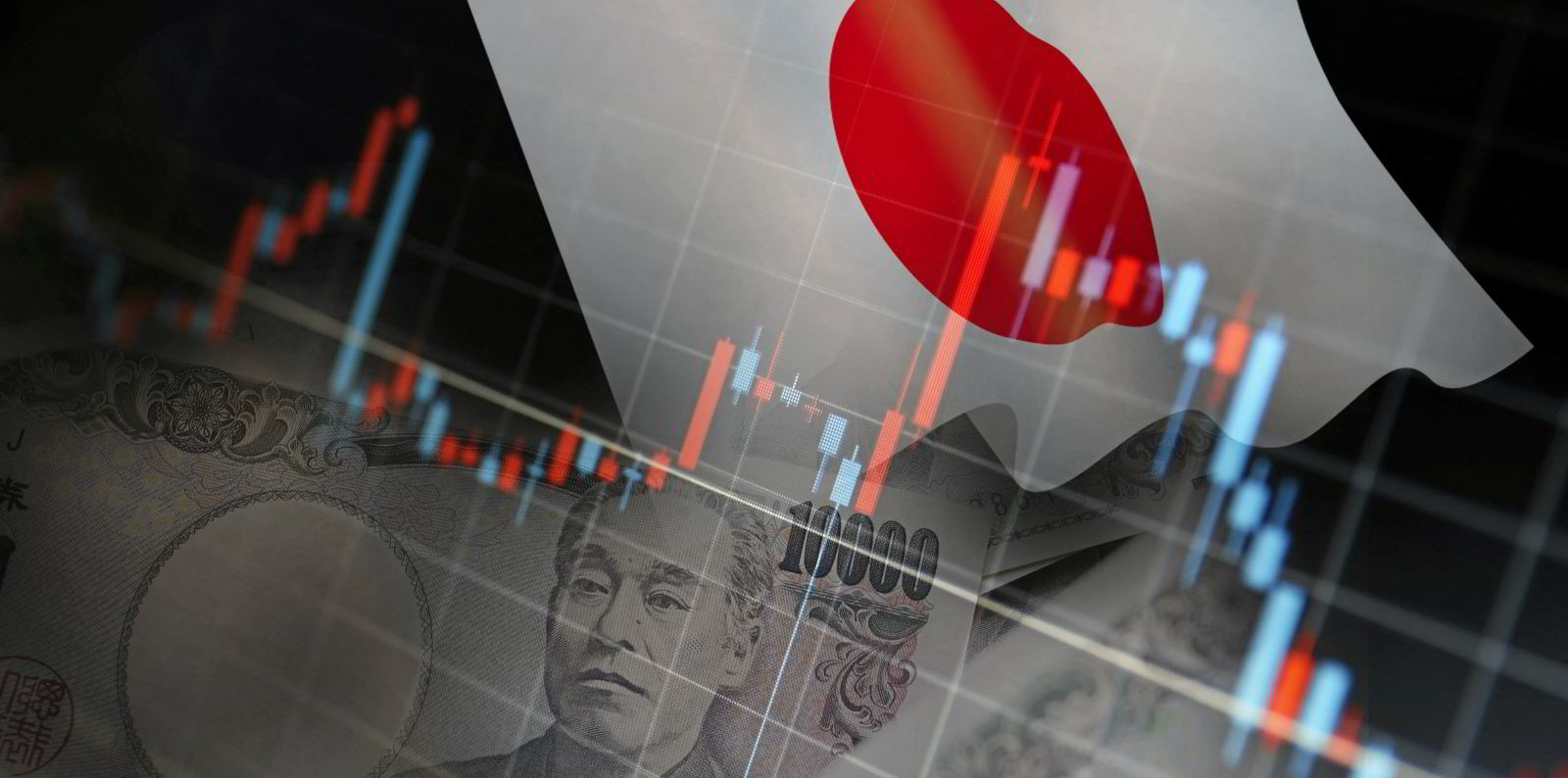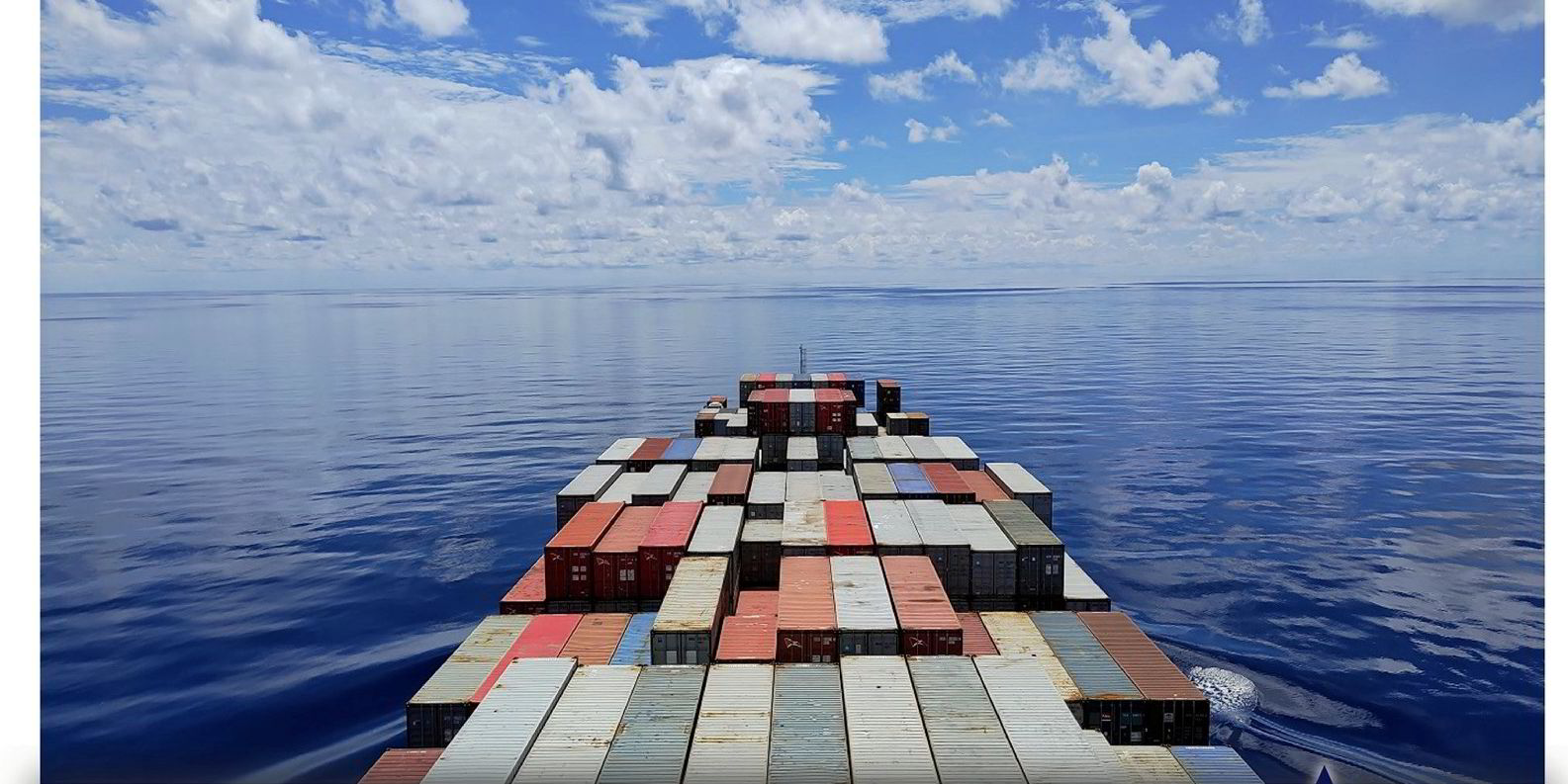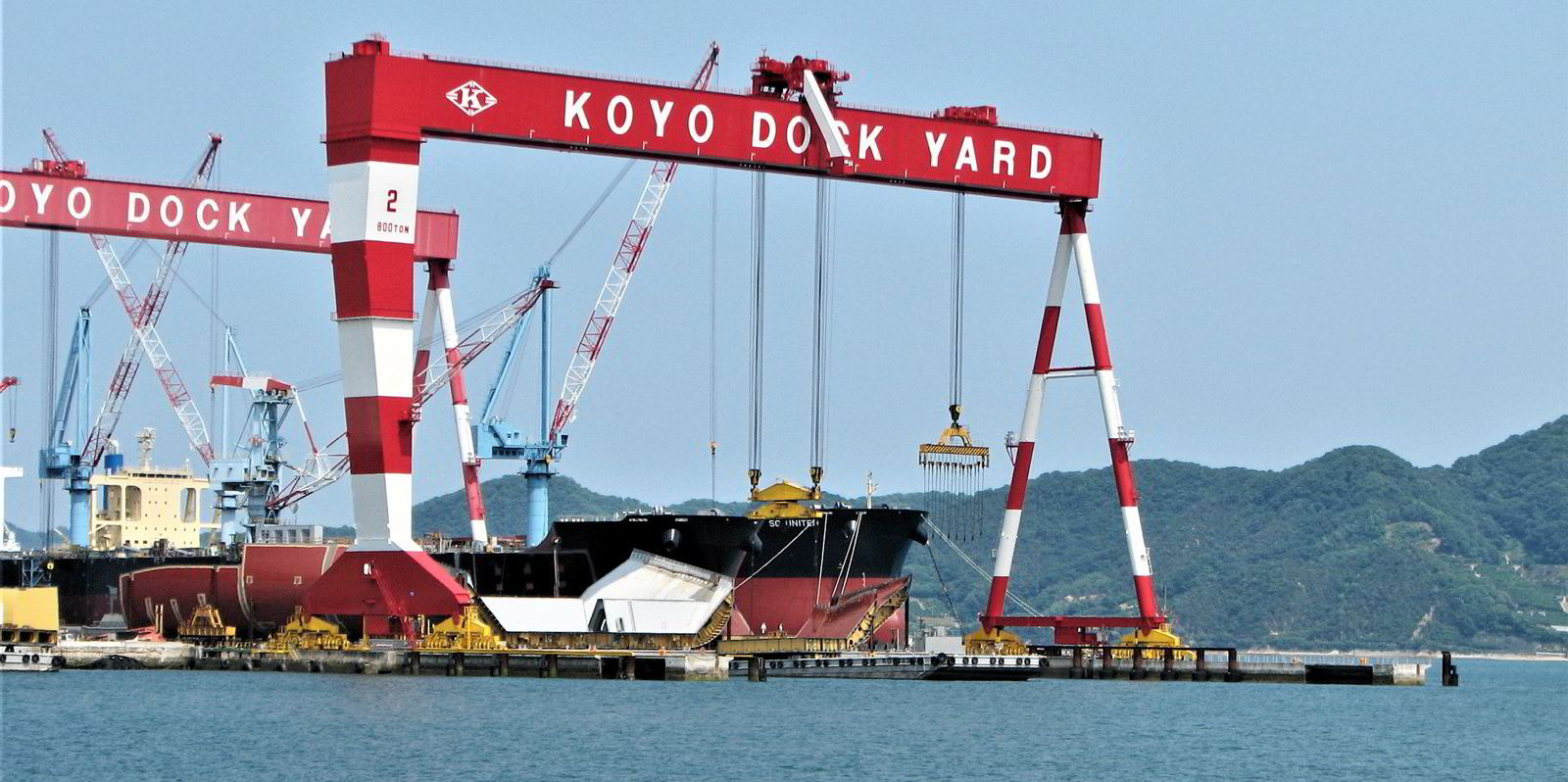A shake-up of the Japanese tax lease finance regime could hit future funding for container ships and LNG carriers built overseas.
As earlier reported, from April, the Japanese Operating Lease with Call Option (Jolco), will be restricted to ships built to a high environmental standard, using alternative fuels and advanced digital technology.
The new rules also involve a change in the application process that will make it more difficult for the popular tax leasing structure to be applied to newbuildings ordered outside Japan.
While Japanese green ship deals will enjoy additional benefits from the changes, foreign-built vessels will need to go through new audit processes and in Japanese.
“This will likely make it a non-starter, or at least make owners who are considering Jolco financing think twice,” said one Tokyo finance source commenting on the future use of Jolcos for non-Japanese-built ships.
TradeWinds is told the move to reform the system partly reflects frustration among domestic shipyards and the government over competing Jolco structures that have been developed abroad based on “tax arbitrage” for business outside Japan.
The structure has become popular as a competitive finance option for major container ship and LNG carrier newbuilding deals.
In one recent example, a $1.17bn finance package combined a 12-year syndicated loan backed by the China Export & Credit Insurance Corp (Sinosure) with sale-leaseback arrangements under the Jolco structure for a series of 15 Chinese-built newbuildings for Seaspan Corp.
Societe Generale acted as joint mandated lead arranger, bookrunner and senior lender.
“The Jolco structure is attractive for shipowners, providing a cost-efficient 100% loan-to-value financing by leveraging Japanese equity investors’ hunger for yield and diversified fixed asset investments. It also has a lower capital cost compared with the shipowners’ own cost of equity,” said Societe Generale.
An earlier $838m financing for Seaspan’s Chinese newbuildings involved a 12-year syndicated loan arranged by Sinosure together with a sale-and-leaseback Jolco structure.
Japan’s FPG Group acted as the Jolco arranger.
Market first
HSBC, which acted as the export credit arranger, described the deal as a “Sinosure-wrapped Jolco facility” and a “market first”.
Jolcos are generally used as a long-term finance tool extending over 12 years or more with equity provided by Japanese equity partners — who benefit from tax breaks — under sale-and-leaseback arrangements.
As the deal offers the lessee a purchase option on the vessel at the end of the initial lease period, the Jolcos are generally regarded as off-balance sheet financing.
The change in financing conditions does not apply to more straightforward Japanese Operating Leases (JOLs), which involve Japanese shipowners arranging more conventional sale-and-leaseback or newbuilding deals for bulk carriers and tankers.
JOLs are regarded as pure lease deals, and finance sources say their popularity for secondhand and newbuilding deals is unlikely to be affected by the changes to the Jolco rules.






